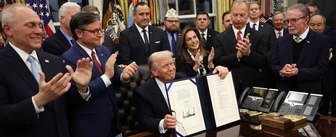Americans don’t want the United States to intervene militarily in Libya — even though many believe that imposing a no fly zone would not be difficult. In the latest Economist/YouGov Poll, most Americans reject the argument that the United States has a responsibility to intervene in trouble spots around the world and simply want to stay out of the fighting between the government and rebels there.
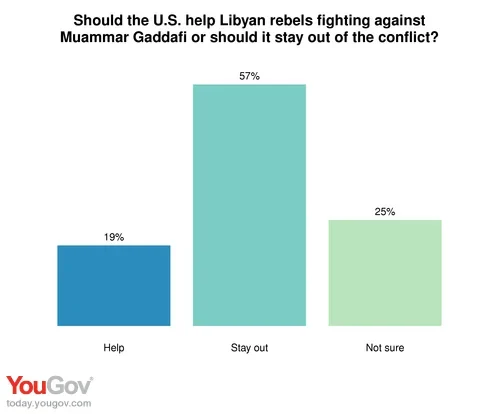
Should the U.S. help Libyan rebels fighting againstMuammar Gaddafi or should it stay out of the conflict? When asked about specific actions in response to the conflict there, a majority of the public supports sanctions against Libya, and more than four in ten favor humanitarian aid, evacuating refugees and imposing a “no fly” zone there. But just 15% want military intervention.
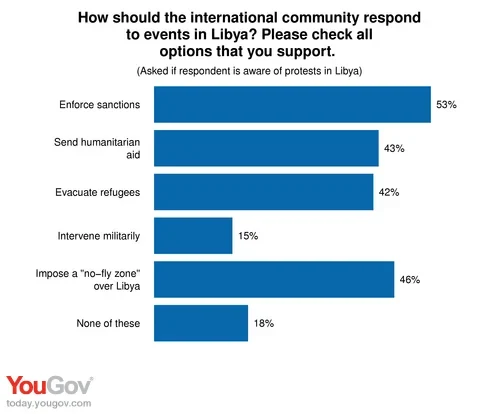
There has been little change in the last week on this.
It is not so much that Americans think the Libyan Army would offer a lot of resistance to the U.S. military, but more that they believe the U.S. should not become involved militarily in another Muslim country. By 43% to 17%, the public agrees that the U.S. could easily impose a "no fly" zone because the Libyan military is weak, but by more than four to one they also agree that as the U.S. is already fighting two wars against Muslim countries, it should not get involved in a third.
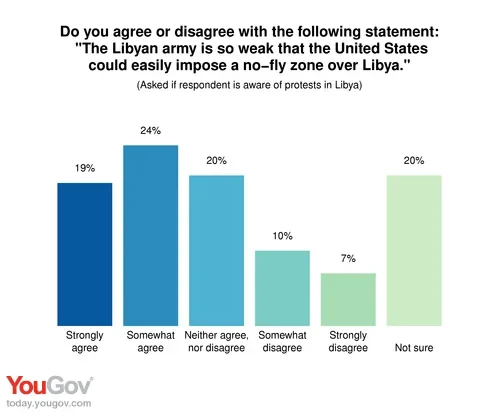
Public opinion has changed dramatically since the start of the U.S. invasion of Iraq in 2003. Then, a CBS News Poll found a majority of the country supporting the principle that the country had a special responsibility to intervene militarily in trouble spots around the world. Now, 50% reject that.
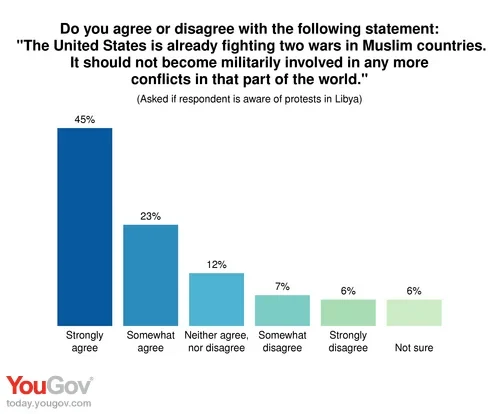
Support for military intervention can change dramatically at different points in time. In the early 1990's, within a year following U.S. success in the first Persian Gulf War, CBS News also found half the public rejecting that argument.
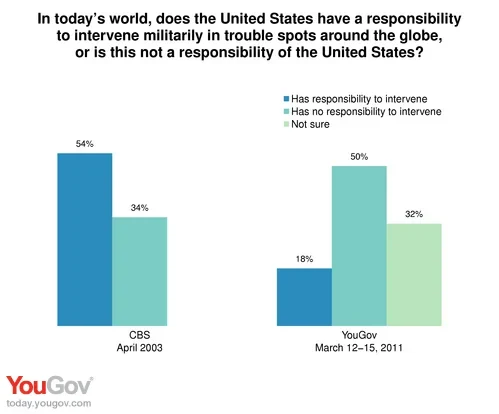
Americans now find some historical cases of military involvement more problematic than others. A majority sees U.S. military involvements in Iraq in 2003 and in Vietnam as mistakes, but opinions are less negative about the 1991 Persian Gulf War, the war in Afghanistan, and earlier conflicts in Bosnia and Korea.
Both Republicans and Democrats in this week's poll reject U.S. military involvement in general and in Libya in particular, but partisans differ when evaluating some past and current conflicts. Democrats view both Iraq conflicts and the war in Afghanistan as mistakes, while Republicans don't.
This is not necessarily a partisan reaction to the party of the Presidents in power when these engagements began. Republicans are more supportive than Democrats of U.S. military actions in Korea and Vietnam, conflicts that began in Democratic Administrations. There is little difference between Republicans and Democrats about Bosnia, which occurred in the Clinton Administration. When it comes to Vietnam, a conflict twice as many Americans in general regard as a mistake than think it was not, Republicans are divided.
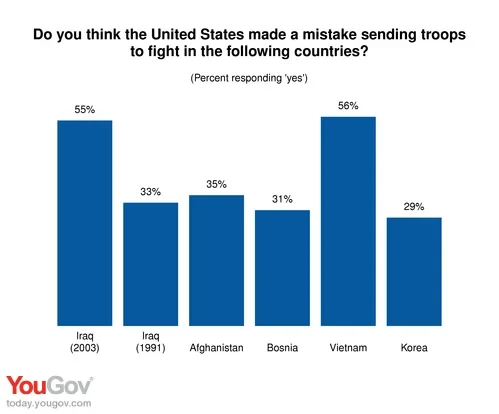
Do you think the United States made a mistake sending troops to fight in the following countries?
| Democrats | |||
|---|---|---|---|
Iraq (2003) | 76% | 10% | 14% |
Iraq (1991) | 44% | 32% | 24% |
Afghanistan | 43% | 38% | 19% |
Bosnia | 29% | 35% | 36% |
Vietnam | 66% | 13% | 21% |
Korea | 37% | 34% | 29% |
| |||
Iraq (2003) | 26% | 67% | 7% |
Iraq (1991) | 13% | 79% | 8% |
Afghanistan | 19% | 71% | 10% |
Bosnia | 28% | 47% | 25% |
Vietnam | 44% | 44% | 12% |
Korea | 18% | 66% | 16% |
Right now, Americans in general think President Obama, who has not ruled out imposing a "no fly" zone in Libya, is doing relatively well in his handling of the Libyan conflict. By 45% to 35%, the public approves his handling of the situation, not much change in the last week.
Overall, the President's approval rating is 45, with 45 disapproving. There have been few changes in his rating since the start of the year.
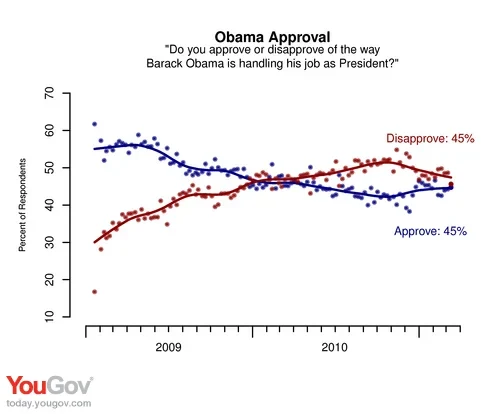
Image source: flickr (WEBN-TV)




